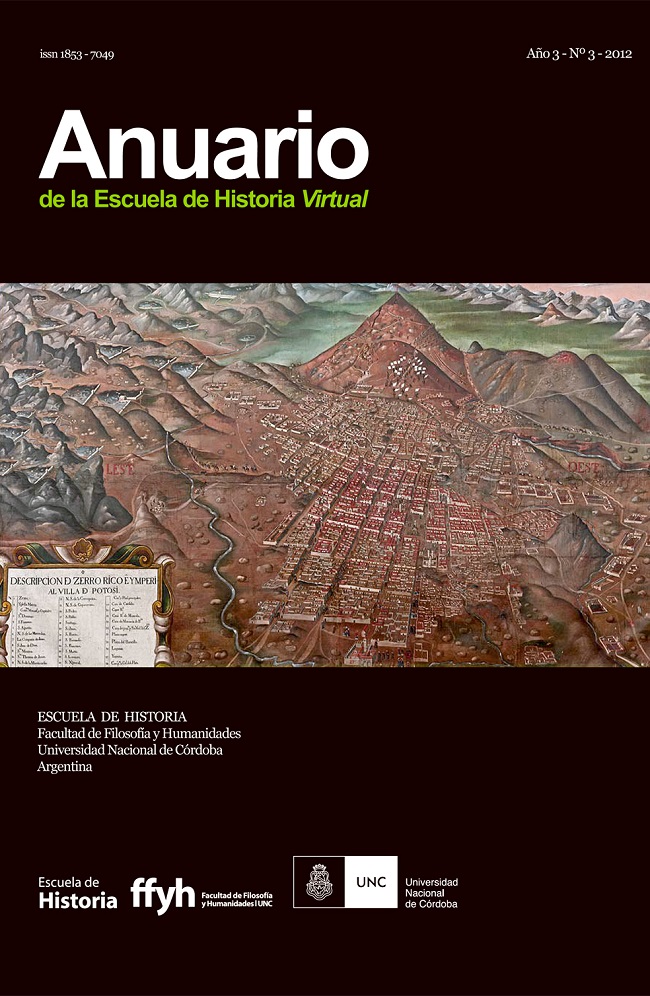The Foreign Element and the Image of the Communist Foreigner during the First Peronism. The Case of the Slavic Union Argentina
Main Article Content
Abstract
The Slavic Union Argentina, and specifically the third Slav Congress, which was attempted in the country in 1949 as a symbol of international anti-fascist struggle, and the ideological metamorphosis that some mem-bers of this organization had transited in their experience of exile, allowed us to look at the active participation that the State had in this repressive policy on communists immigrants, through the application of the Residence Act (No. 4144), in order to disarticulate the class struggle and eject dissent.The image that were formed in this period about the "undesirable foreigner communist" was central to justify the use of the Residence Act and enforce the arrest and expulsion of foreigners which developed "subversive activities" and threatened the national security, where the police, the government, conservative groups, the army and the Church were the backbone of this action.
Downloads
Download data is not yet available.
Article Details
Issue
Section
Articles
Esta Revista es de Acceso Abierto (Open Access). Sigue la licencia CC Reconocimiento-NoComercial_SinObraDerivada 4.0 (http://creativecommons.org/licenses/by-nc-nd/4.0)
Bajo los siguientes términos:
Atribución - Usted debe dar el crédito apropiado, proporcionar un enlace a la licencia e indicar si se hicieron cambios. Usted puede hacerlo de cualquier manera razonable, pero no de ninguna manera que sugiera que el licenciante lo respalda a usted o a su uso.
No comercial - Usted no puede utilizar el material con fines comerciales.
NoDerivados - Si remezclas, transformas o construyes sobre el material, no puedes distribuir el material modificado.
